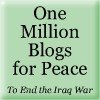Night--A Remembrance--3/26
The New York Times called Elie Wiesel’s book Night “A slim volume of terrifying power.” That’s what it says on the front cover. It is a choice of Oprah’s Book Club. It is indeed powerful—and disturbing.
Wiesel, who was awarded the Nobel Peace Prize in 1986, has written over forty books, both fiction and nonfiction. Night was his first. In his preface, he says, “If in my lifetime I was to write only one book, this would be the one. Just as the past lingers in the present, all my writings after Night, including those that deal with biblical, Talmudic, or Hasidic themes, profoundly bear its stamp, and cannot be understood if one has not read this very first of my works” (vii).
He explains that if he had not written this book, he would not have been able to write any of the others. It is easy for me to see why, after reading it. He had to write it, to be able to deal with what happened and to be able to have any kind of life afterwards.
The book is about his experiences in 1944-45. He was only fifteen years old when his family was taken by the Nazis, along with the many other Jewish residents of Sighet, Transylvania, to Auschwitz and later, to Buchenwald. He and his father were separated from his mother, his little seven-year-old sister Tzipora, and his two older sisters as soon as the railroad cars unloaded at Auschwitz. He never saw his mother and sisters again. He asks, “How was one to speak of them without trembling and a heart broken for all eternity?” (ix).
It is a terrible story of how the Jews discovered “a demented and glacial universe where to be inhuman was human, where disciplined, educated men in uniform came to kill, and innocent children and weary old men came to die” (ix). Families were torn apart; the oldest, youngest, and most infirm were murdered because they were not useful. The strongest survived, at least for a time, because they could be made to work. They lived in inhumane conditions, starved, frozen, tortured. Wiesel says he became less than human at times, a starved, walking corpse.
He tells of the deep concern he and his father had for each other. Many times, one or both of them would have died if it had not been for the other urging him on. Near the end of the war, thousands were moved from Auschwitz to Buchenwald. Many died during the all-night march, running and trekking through below-zero weather. Exhausted, at one point Wiesel fell asleep in the snow, but his father made him get up so that he would not freeze to death. In the last hours, the death-thin people were transported in open cattle cars, a hundred to a car. He and his father were among only twelve of the hundred who survived to leave their cattle car.
On the way to Buchenwald, in a freezing barrack at the village of Gleiwitz, the men were allowed to sleep, but sleep was difficult. The sixteen-year-old Wiesel was able to survive the ordeal because of his youth, no doubt; but his father was sick beyond mending. Juliek, a Jewish musician, had risked all to bring with him his violin, and he began to play in the dark barrack “here, at the edge of his own grave” (95). The musicians had been forbidden to play anything written by Beethoven. But now, Wiesel says,He was playing a fragment of a Beethoven concerto.
Never before had I heard such a beautiful sound. In such silence. . . . .
The darkness enveloped us. All I could hear was the violin and it was as if Juliek’s soul had become his bow. He was playing his life. His whole being was gliding over the strings. His unfulfilled hopes. His charred past, his extinguished future. He played that which he would never play again.
I shall never forget Juliek. How could I forget this concert given before an audience of the dead and dying? Even today, when I hear that particular piece by Beethoven, my eyes close and out of the darkness emerges the pale and melancholy face of my Polish comrade bidding farewell to an audience of dying men.
I don’t know how long he played. I was overcome by sleep. When I awoke at daybreak, I saw Juliek facing me, hunched over, dead. Next to him lay his violin, trampled, an eerily poignant little corpse. (95)
In his Nobel acceptance speech, Wiesel said that the “honor belongs to all the survivors and their children and, through us, to the Jewish people with whose destiny I have always identified” (118). He has dedicated his life to making sure that people remember what happened—that they don’t forget that this kind of thing can happen—and to all victims of injustice and suffering everywhere.








1 comment:
The bit about Juliek and the violin really stood out for me too.
Post a Comment